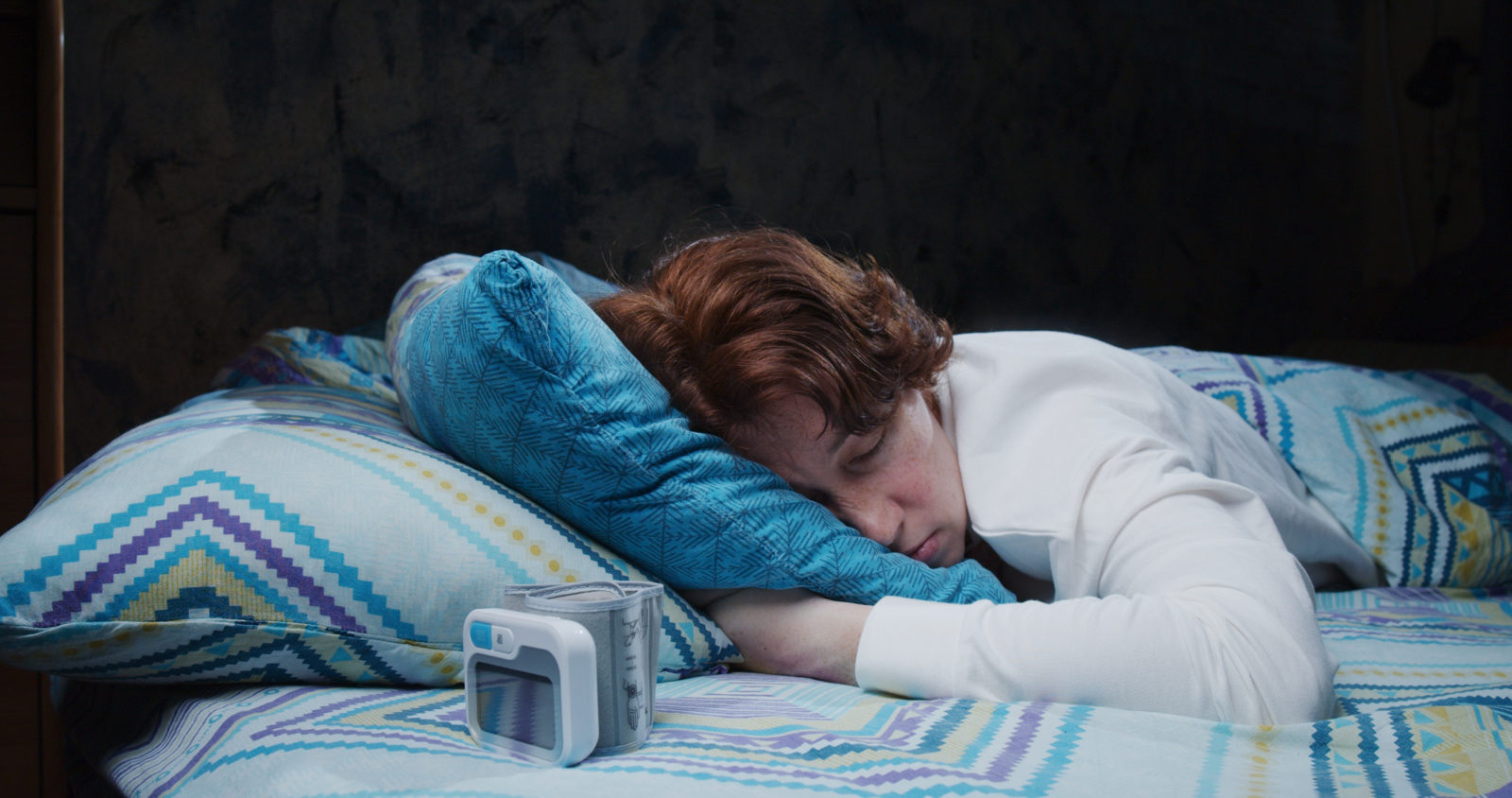Nocturnal Hypertension: An Invisible Monster

What goes thump in the night this Halloween season? Let’s hope it’s creatures of the night and not nocturnal hypertension!
Nocturnal hypertension is high blood pressure that happens while someone is sleeping. These spikes can have deadly consequences, including heart failure and other cardiovascular diseases. The scariest part: people with normal blood pressure during the day can have high blood pressure at night! This means that nocturnal hypertension might remain unknown and invisible, since most blood pressure readings are taken during daytime (awake) hours.
Blood pressure at night
During a 24-hour cycle, it’s normal for blood pressure to change. In fact, there is a normal 10-20% dip in blood pressure while sleeping. Some people are “extreme dippers” whose blood pressure will drop more than 20%. There are also “non-dippers” whose blood pressure doesn’t change at night; this is abnormal and usually occurs in people who have high blood pressure during the daytime. The “reverse dipper” is an individual with blood pressure that rises during sleep; up to 19% of people are “reverse dippers.” Those with already diagnosed high blood pressure have a 50-50 chance of also having nocturnal hypertension.
Because blood pressure at night is supposed to dip, nocturnal hypertension refers to any blood pressure above 110/65 mmHg during that time. Normal daytime blood pressure is at or below 120/80 mmHg.
Like normal high blood pressure, nocturnal hypertension is a silent killer. Still, there are some symptoms to be on the lookout for:
- Waking up often during the night
- Snoring, holding one’s breath, or gasping while sleeping
- Getting up to urinate frequently
There are many possible causes for nighttime high blood pressure. These include sleep apnea, diabetes, kidney disease and/or transplant, restless leg syndrome, lack of activity or quality sleep, high salt intake, and night-shift work. Nocturnal high blood pressure has been associated with kidney disease and failure, stroke, heart attack and failure, cardiovascular death, and cognitive decline.
So how can you protect yourself from this invisible monster? Dr. Victoria Shin, a cardiologist at Torrance Memorial Medical Center in California, advises, “Taking blood pressure medication in the evening improves blood pressure throughout [the night and day] and reduces mortality overall.” Miami, Fla., cardiologist Dr. Leonard Pianko adds, “The most important way to lower your risk of an acute nocturnal spike in your blood pressure is to maintain a consistent sleeping pattern.” So, “Try to go to sleep and get up at the same time each day. Avoid alcohol and caffeine before bed. Exercise earlier in the day. Avoid the blue light of digital devices before bedtime. Seek help for anxiety and consider meditation or similar activities to control stressful situations.”
After all, the only ones who want high blood pressure at night are vampires. And they’re fictional — except on Halloween.
Sources: Healthline; VeryWell Health
![Charlesgate [logo]](https://www.charlesgate.net/wp-content/uploads/sites/218/2016/12/logo-new.png)